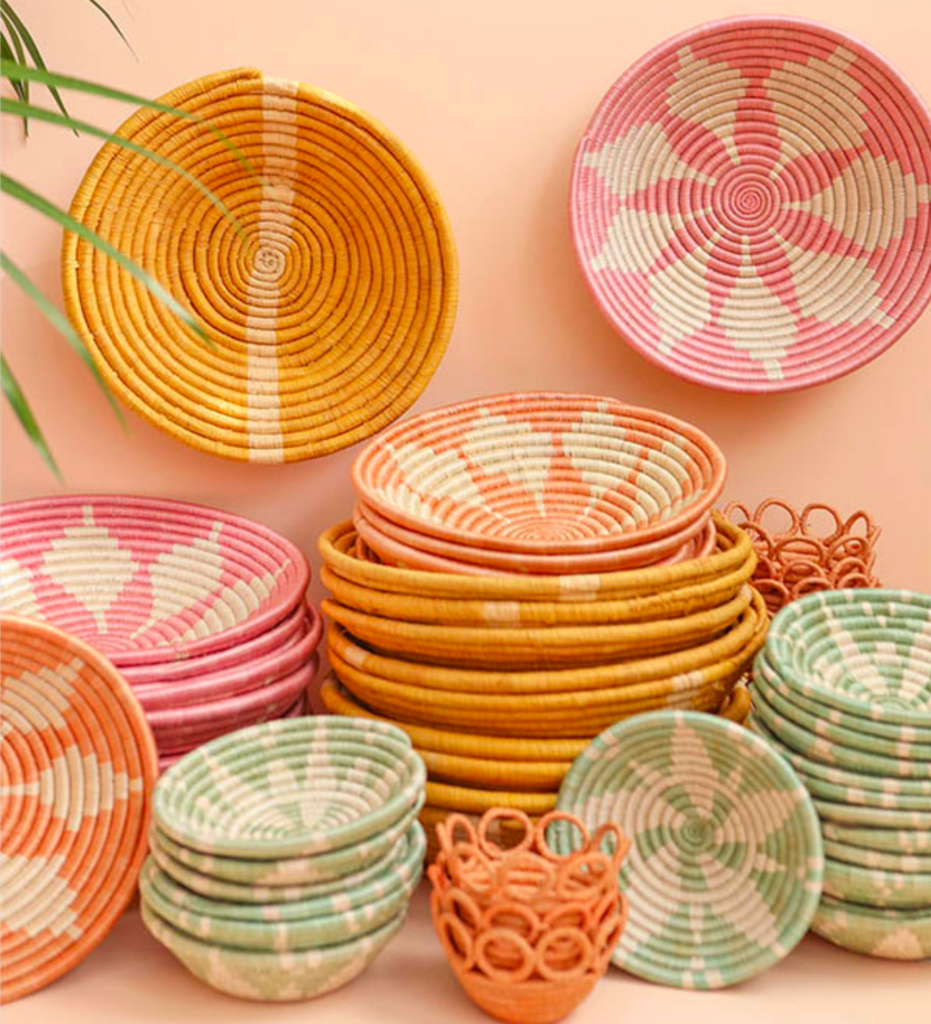To start with, I think it’s important for me clarify the title of this post. When I say “building a case”, I don’t mean physically making a place to put baskets in – although that wouldn’t be a bad idea, because who doesn’t want storage for their storage – but that’s not why we are here. I’m talking more about sharing facts about baskets which will add up to a convincing narrative about why you should be as crazy about baskets as I am 🙂 Yes, I’m a basket case for baskets! Now that we’ve established why we are here, and you know my intentions upfront, I invite you to kick back with a cuppa something, while you hear me out.

Cultural Preservation
For this post, I’m going to be focussing on hand-woven baskets made by African artisans. What’s apparent about these baskets is that they are strikingly beautiful, but we don’t often think about exactly how these works of art are made, and the historical relevance of this tradition doesn’t even cross our minds. The coming together of women, the oral tradition of storytelling and the symbolism of the baskets is so heartwarming, I think it warrants an entire blog post to do the topic justice. For now, I’ll briefly share one of my favorites, the starburst patterned Rwanda basket, called the hope basket which is exchanged by friends to celebrate milestone such as weddings and births. The baskets are proudly displayed as a reflection of abundance in friendships, family and life, and they carry with them the collective hope a new dawn and brighter future.

Basket weaving is traditionally a woman’s craft, which is passed down from mother to daughter. The roots of this tradition pre-date pottery, as found by Archeologists who discovered ‘imprints’ of baskets in Gambol’s Cave, Kenya dating back 10,000 years. It is a well-respected skill that has evolved with our needs as humans, starting as practical containers to use when gathering nuts and berries, through to the present day where they can be used as aesthetic statement pieces in the home. Owning a hand-woven basket allows you to connect with an ancient tradition and as we continue to find more uses for them, we play an important part in keeping the tradition of weaving alive.
Multi-functional
Speaking of finding more ways to use baskets, we really must take a moment to acknowledge their versatility.
Round Basket/ Black & Neon Mtoto Round Basket


This basket can be used as a striking wall statement on its own or it can be paired with other bowls or plates for a more dramatic arrangement. It can also be used as a catchall in the entryway for keys and coins. In the bedroom, a set of 3 can be used to hold jewelry or it can be placed on a bookshelf for a decorative touch in the colour palette of your living room
Natural Raffia Fringed Anyon Vase/Criss Cross Pom Pom Blush Vase



A vase is not just a vase , decorative accent piece which is just as beautiful on its own as it is with other raffia pieces. It comes with a glass insert so a fresh floral arrangement can take pride of place and if you prefer faux flowers, you won’t need the glass insert. Need somewhere to store your wooden spoons, or a vessel to hold a bottle?
Natural Fringed Kisasa Bowl



This catchall is as versatile as it is beautiful. It’s the perfect size for bathroom storage, deep enough to hold bedroom accessories, place it up-side down to make it a pedestal or take it into the kitchen or dining room table and use it as a fruit bowl.
Economic Impact

Women are the backbone of the home artisan industry, and not only is their craft sustainable, but it also has powerful economic impact. If I may share a quote from the United Nations Foundation which illustrates this point beautifully, it says – “Girls and women more often bear the consequences of poverty, lack of health care, lack of education, climate change, and other inequalities. Yet when girls are safe, healthy, educated, and empowered, they earn more, have healthier families, and grow economies.”
Each handwoven product that is purchased from the female artisan weaver contributes to injecting more money into local markets, giving the artisans more spending power which creates more jobs and opportunities in sectors that reach far beyond the handicrafts industry. According to All Across Africa, “94% of Artisans have purchased livestock or land as an investment, 96% are able or have been able to send their children to primary school, and 88% of all artisans have active savings accounts.” All from the beautiful craft of weaving. Now if this doesn’t make you want to support the basket weaving trade, I don’t know what will!
With all that said, can we officially have an “African Basket” appreciation day? It doesn’t have to be today, but we have to agree to at least have a day. Let’s make it a thing!
Until next time,
Take care basket lovers!
